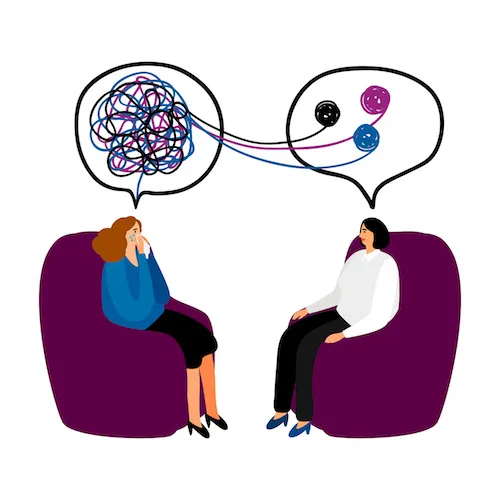
Talking to Your Boomer Parents About Therapy
Navigating the conversation about therapy with Baby Boomer parents can be challenging, but it’s an important step in fostering understanding and support for mental health. Here’s a detailed guide to approach this sensitive topic with care and respect.

therapy
Choose the Right Time and Setting
Start by selecting a calm, private moment for the conversation. Avoid times of stress or conflict, as these can make your parents more resistant to the idea. A quiet evening or a weekend afternoon might be ideal. Ensure that you have their full attention and that the environment is conducive to a meaningful dialogue.
Prepare Your Points
Before initiating the conversation, reflect on your reasons for seeking therapy and how it benefits you. Organise your thoughts to communicate clearly and confidently. Emphasise the personal benefits, such as improved mental well-being, better coping strategies, and overall life satisfaction. Being prepared will help you articulate your needs more effectively.
Use Relatable Language
Boomer parents might not be familiar with modern mental health terminology, so use language that resonates with their experiences. Frame therapy as a proactive approach to personal growth rather than a reaction to a crisis. Explain it in terms they understand, such as seeking advice from a professional to address life challenges or to improve personal well-being.
Highlight the Benefits
Emphasise the positive outcomes of therapy, such as gaining a better understanding of oneself, improving relationships, and managing stress more effectively. Illustrate how therapy can help with everyday challenges, much like how they might seek a financial advisor for investment advice. Making the concept relatable can help demystify it.
Address Their Concerns
Be ready to listen to their concerns and validate their feelings. They might have reservations due to generational beliefs or misunderstandings about therapy. Address these concerns empathetically and provide reassurance. Explain that therapy is a normal and healthy step, just like going to the doctor for physical health issues.
Share Success Stories
If possible, share stories of people they might know or respect who have benefited from therapy. Personal anecdotes or public figures who have openly discussed their positive experiences can be powerful in changing perceptions. This can help normalise therapy and reduce stigma.
Encourage Open Dialogue
Invite them to ask questions and express their thoughts. An open and respectful dialogue can help clear up misconceptions and build mutual understanding. Let them know that their support is important to you, even if they don’t fully understand or agree with your choice.
Be Patient
Changing attitudes and beliefs can take time, especially with generational differences. Be patient and prepared for ongoing conversations. Your goal is to build understanding and support, not necessarily to win them over immediately.
Reaffirm Your Decisions
Reiterate that seeking therapy is a personal decision aimed at improving your life. Assure them that you value their opinions but are making this choice for your well-being. Your commitment to therapy can ultimately serve as a positive example of taking charge of one’s mental health.
Seek Professional Guidance
If the conversation proves particularly challenging, consider involving a mental health professional who can help mediate or provide additional insights. Sometimes, having a neutral third party can facilitate better communication and understanding.
How Can We Communicate About This Topic in a Way That Makes Both of Us Comfortable?
To communicate about therapy in a way that makes both you and your parents comfortable, start by setting a respectful and open tone for the conversation. Begin by expressing your desire for their understanding and support, emphasising that this discussion is important to you. Acknowledge their feelings and concerns about therapy, validating their perspectives while gently sharing your own. Be patient and listen actively to their responses, allowing them to voice their thoughts without interruption. Use clear and relatable language to explain therapy and its benefits, avoiding jargon that might create confusion. Encourage an open dialogue by asking for their input on how to approach the topic in a way that feels respectful and inclusive. By fostering a two-way conversation, you can create an environment where both sides feel heard and valued, leading to a more constructive and supportive discussion about therapy.
What Type of Information or Resources Would Help You Understand Therapy Better?
To help your parents understand therapy better, it can be useful to provide them with a variety of resources tailored to their needs and preferences. Consider offering informational materials such as brochures or articles that explain what therapy is, how it works, and its benefits in simple, accessible language. Books or online resources written by reputable mental health professionals can offer deeper insights into the therapeutic process. Additionally, sharing testimonials or success stories from individuals who have benefited from therapy can help normalise the experience and highlight its positive outcomes. If they are open to it, you might suggest attending a seminar, workshop, or informational session together that focuses on mental health and therapy. Tailoring the information to address their specific concerns and learning preferences can help bridge the gap in understanding and foster a more supportive and informed conversation about therapy.